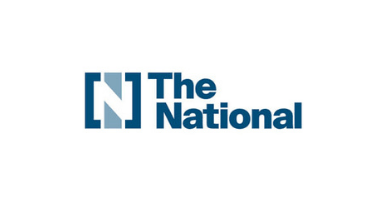British homebuyers may have breathed a sigh of relief over the extension of the stamp duty land tax till September, but not wealthy Londoners.
With the average house prices in Central London at £1.45m and £644,631 for properties within Greater London, according to estate agents Foxtons and Zoopla respectively, the £500,000 limit for SDLT exemption has not done much to the bills associated with buying prime properties in London.
A decade ago, those buying properties worth over £500,000 may have been classed as high-end buyers, but exponential house price growth in the capital in particular has seen many home-buyers looking for properties well in excess of that sum.
Moreover, the pandemic has driven more people to buy larger properties with bigger gardens, in an attempt to balance work and home life better as lockdowns forced a change in people's lifestyles.
Such properties, according to these estate agents, are therefore in high demand and currently tend to come with a much higher price tag of £1m and above.
Therefore, people buying 'prime' properties - some of which are valued at £3m or more - are now paying a significant proportion of the entire SDLT take in 2020 across the whole of England.
According to mortgage broker Enness Global Mortgages, London’s high-end homebuyers paid 12 per cent of the total stamp duty owed across England in 2020, despite accounting for just 0.1 per cent of market transactions.
Even with the capital’s top-tier market accounting for a minute proportion of transactions, London’s high-end homebuyers paid out a total of £368.6m in stamp duty in 2020 alone.
While many homebuyers in London’s top tier will still have saved £4.5m in stamp duty since the start of holiday - as SDLT will not have kicked in until the £500,000 hurdle, this equates to just 0.4 per cent of the total saving made across England.
Total prime property buyers across the UK bought just 846 homes - roughly 2 per cent of the market - and accounted for 15 per cent of all stamp duty paid in England, Enness found.
Islay Robinson, chief executive of Enness, said: "While stamp duty is often considered a financial barrier to buying for the average homeowner, the sums paid via the prime market are far more substantial."
The breakdown:
Enness analysed market sold price records for transactions at £3m and above to have completed in England during 2020.
- Across the residential property market in England, a total of £2.9bn was paid in stamp duty in 2021 across 468,929 transactions.
- A total of £1.2bn was saved as a result of the stamp duty holiday implemented in July.
- As much as £436.4m of this was paid on transactions with a sold price of £3m or above.
- The prime market accounted for 15 per cent of all stamp duty paid in England.
- This tax came via just 846 property sales, accounting for 0.2 per cent of the entire market.
However, stamp duty is just one piece of the puzzle when buying a property in the UK. Any discount negotiated, the potential to add value, finance costs and currency considerations all need to be weighed up to determine the true value of a transaction.
Therefore, Robinson said looking at stamp duty in isolation does not provide an accurate indicator of the additional costs incurred when buying.
Robinson added: "Those transacting at the very top-end are far better placed to stomach these costs and so a stamp duty saving hasn’t been a driving factor with regard to transacting, nor has it caused the mad panic to complete that we’ve seen across the regular market."
Moreover, foreign buyers are not going to benefit from the SDLT extension - and there is an additional 2 per cent added for non-domestic buyers.
As a result, foreign buyers will now see the stamp duty owed increase by £95,000 as of April 1st, increasing from £378,750 to £473,750 on an initial purchase and £498,750 to £593,750 on a secondary property.
Robinson added: "Of course, the introduction of a further two per cent stamp duty penalty for foreign buyers won’t do much to help this returning health, with high-end homebuyers from outside of the UK looking at an average cost of half a million pounds owed in stamp duty alone as of April.
"That said, a prime London home remains one of the must-haves on any notable international property portfolio and so this increase will be viewed as a small price to pay for the serious investor.”




